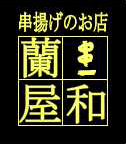中国の海外アニメ禁止と作られる反中国感情
中国では、9月1日からゴールデンタイムに外国のアニメ番組の放映を禁止することを決定したとのことである。そして、"日本国内"では、軒並み、「事実上、日本のアニメを対象とした措置とみられる」と報道している。
本当に「日本のアニメを対象とした措置」なのか?
参考までに、このワタクシが理解できる言語(と言っても、中国語とフランス語と英語くらいだが)で各国のニュースを見てみた。と言っても、この場合、中国国内の報道は意味はないが。
とりあえず、APの英語のニュースだけを以下に引用してみたが、要旨としては、
「中国はプライムタイムの外国のアニメを禁止。国産アニメスタジオを作ったにもかかわらず、(日本を中心としたアニメ番組)が主流となっていることに共産党幹部は苦虫」といった内容である。
そして、中国国内でも、「国内で産業が育っていないのに、外国の良質のものを規制してしまうともっと産業が伸びなくなる」という意見が出ている。
ついでに、APでは、「ドラえもん」ではなく「シンプソンズ」と「ディズニー」を主体に記事を書いている。
どの国のどの言語の記事も同じような内容である。
日本語のニュースだけは、「日本を狙い撃ちした」となる。
要するに、日本語しか読んでいないと、「中国は日本を排除」的な印象しか持たず、これまたマスコミ得意の「チャイナ・バッシング」に引きずり込まれてしまう。
日本は世界の中でも大国である。特に、産業的に規制されると、どの分野でももっとも影響を受ける国である。
家電でも一番被害が大きいであろう、自動車でもそうであろう。アニメももちろんそうである。
各国が自国産業を育成するのは当然である。
それを最も得意としてきたのが日本であることは言うまでもない。日本の自動車産業が成長するまでは、外国の自動車にトンでもない関税を掛けて、アメリカの普通車の値段を日本の最高級車並みの値段にしてしまった。自国産業が育ってようやく輸出できるようになると、「さあ同じ土俵で勝負しましょう」と言い出しだが、今ではアメリカ車を国内でも外国でも見ることは少なくなってしまった。自国産業を保護しまくった結果強くなった日本車は世界を席巻している。
ついこの間まで、牛肉もオレンジも簡単には日本には持ち込めなかった。
「海賊版」にしても、日本の得意技であったが、世界から叩かれた結果、必要以上に著作者の権利を騒ぐようになり、今では日本が中国を叩いている。要するに、日本もえらくなっただけで、ここまで大国になるまでに日本がやってきたことをアジアの伸び盛りの国がやっているだけである。
つまり、日本人にとって、中国はトンでもない国かもしれないが、世界からするとついこの間までの日本を見る目で見ているだけのことである。中国を非難する日本を見て世界は単なる「成り上がり」としか見ていないであろう。
相手がどの国であっても、おかしなことは糾弾すべきである。
しかし、歴史を認識した上で言わないと単なる成り上がりのアホにしか見えない(要するに、誰も聞いてくれない)し、おかしなことをマスコミが捏造してしまうと、それを基にした知識でいくら偉そうに議論しても、国そのものが馬鹿にされてしまうのである。
今の日本人の「反中感情」には、根拠のないものが多過ぎるのではないのか。
このワタクシはちっぽけだが、中国を叩く必要があるのなら、心臓部を突き刺すくらいのネタで堂々と勝負したい。くだらないニュースが流れるたびに「中国はケシカラン」と騒ぐような、それこそ日本のニュースが流れるたびに「小日本」なんて言っているような中国人と同じレベルの日本人が多いのはなぜなのだ?
人間というもの、自分の知っている分野については嘘は見抜けるが、知らないことを報道という名の下に流されると全て信用してしまうような動物である。
その観点からすると、今のマスコミの連中は、職業を間違っているのではないだろうか。
(報道をぼやく)
報道をぼやく アーカイブ
(中国関連)
中国でぼやく アーカイブ
(引用)
イザ!:中国が海外アニメ放映禁止 若者感化に警戒感 9月からゴールデンタイムで-世界からニュース
13日付中国各紙によると、国家ラジオ映画テレビ総局は、9月1日からゴールデンタイムに外国のアニメ番組の放映を禁止することを決定した。事実上、日本のアニメを対象とした措置とみられる。中国では「ドラえもん」など日本のアニメは高い人気がある。一方で中国国産アニメは独創性に欠け、技術面でも劣っていると中国側からも指摘されている。
しかし、今回の措置は国内産業保護というよりも政治的側面が影響しているようだ。香港の人権団体・中国人権民主化運動情報センターによると、中国で放映される外国アニメの92%は日本製で、昨年3月の全国人民代表大会(全人代=国会に相当)で、中国の青少年に対する日本文化の影響を取り除くべきとの意見が出されていた。
China bans 'Simpsons' from prime-time TV - Yahoo! News
Mon Aug 14, 7:42 AM ET
BEIJING - D'oh! China has banished Homer Simpson, Pokemon and Mickey Mouse from prime time. Beginning Sept. 1, regulators have barred foreign cartoons from TV from 5 to 8 p.m. in an effort to protect China's struggling animation studios, news reports said Sunday. The move allows the Monkey King and his Chinese pals to get the top TV viewing hours to themselves.
Foreign cartoons, especially from Japan, are hugely popular with China's 250 million children and the country's own animation studios have struggled to compete. Communist leaders are said to be frustrated that so many cartoons are foreign-made, especially after efforts to build up Chinese animation studios.
The ban hasn't been formally announced, but newspapers already were criticizing it Sunday as the wrong way to improve programming.
"This is a worrying, shortsighted policy and will not solve the fundamental problems in China's cartoon industry," the Southern Metropolis News said. "The viewing masses, whether adults or children, will have no choice but to passively support Chinese products."
Chinese animators produce hundreds of hours of programs a year but aren't known for flair or originality. They draw on traditional stories such as "Journey to the West," about the adventures of the Monkey King, and have yet to invent characters to match the appeal of Mickey Mouse or Japanese icons such as Pokemon.
The cartoon campaign comes amid efforts by President Hu Jintao's government to tighten control over other pop culture, ranging from movies to magazines and Web sites.
TV stations have been told to limit foreign programming, stop showing scary movies in prime time and have their hosts dress more conservatively and use fewer English words on the air.
Most cartoons on China Central Television, the national broadcaster, are Chinese-made. But more freewheeling local broadcasters show everything from "The Simpsons" to Japanese, South Korean and European cartoons dubbed into Chinese.
Film studios have been pushed to merge in order to create big, well-financed competitors. Officials have set up 15 animation centers to nurture the industry, invoking communist guerrilla vocabulary by dubbing them "production bases."
"The reason for the regulation is clear. It is to protect domestic cartoon production," the Southern Metropolis said.
The newspaper cited what it said was a recent study that found that 80 percent of Chinese children surveyed liked foreign cartoons and disliked domestic animation.
Chinese studios employ thousands of skilled animators, but many focus on doing work subcontracted by Walt Disney Co., Warner Bros. and other Western or Japanese studios.
Broadcasters were told to limit use of foreign cartoons in 2000 at a time when Japanese animation dominated the market. In 2004, the government stepped up controls, saying Chinese cartoons had to account for at least 60 percent of the total shown in prime time.
In February, regulators banned programs that mix animation with live characters in an apparent effort to protect Chinese studios, which don't produce such programming. Regulators haven't released details, but the ban could affect popular children's TV shows such as "Blue's Clues" from the United States and Britain's "Teletubbies."
The government also protects Chinese film studios by limiting imports of foreign titles. But that strategy appears to have backfired by creating a market for pirated movies, which both foreign and Chinese studios say robs them of box office revenues.
On Sunday, Chinese moviemakers accused TV stations of becoming part of the nation's thriving movie piracy industry, airing up to 1,500 pirated Chinese movies a year.
Beijing also has thrown up barriers to other pop culture.
In April, the government disclosed it was no longer granting publishing licenses for foreign magazines in an effort to protect its domestic industry. That came after a joint venture that published a Chinese edition of "Rolling Stone" was forced to dissolve after a single issue.
(引用終)











